Sometimes, the world has a funny habit of putting everything together with what seems an uncanny quirk of fate. After graduating from University, Mark Scholes was working at the now defunct Muji store in Manchester. When the store closed and redundancy followed, he was left stuck at home, signing on the dole, wondering in which direction life would take him.
To bring in some cash and to also satisfy his creative yearnings, he began running a pretty successful night at Common Bar, in Manchester’s Northern Quarter, called ‘Best Foot Forward’ (BFF). Running parallel to the night was an equally pretty successful music blog. Launched in 2005, this was way before #content #marketing was a proper thing.
Like many bored twenty-something’s struggling to find stimulating-enough work here in the North West, the allure of a run-of-the-mill job based in sunnier climbs took his fancy. Via a connection with his university, he found out that a department store in Sri Lanka was looking for a UK graduate to work as a menswear buyer in their Colombo head office.
The buying role application didn’t work out, but he was instead offered a marketing and e-commerce position on the back of the success of the BFF blog. He nearly didn’t take it, but in the end he couldn’t resist the allure of upping sticks and living on a beautiful island in the Indian Ocean. Within a couple of years he had founded his own clothing label (tuktuk), opened an office in Sri Lanka, and was distributing the brand all around the World.
To say he hasn’t looked back is an understatement.
With a few comical cameos in Sri Lankan films and a fleeting stint as a national radio show host, it seems menswear was the direction he was looking for after all.
Now, his new label, Afield, launches in January 2017, and alongside showrooms in London, Madrid & New York, the collection will also be sold in 60+ stores around the world.
It’s been quite a journey.
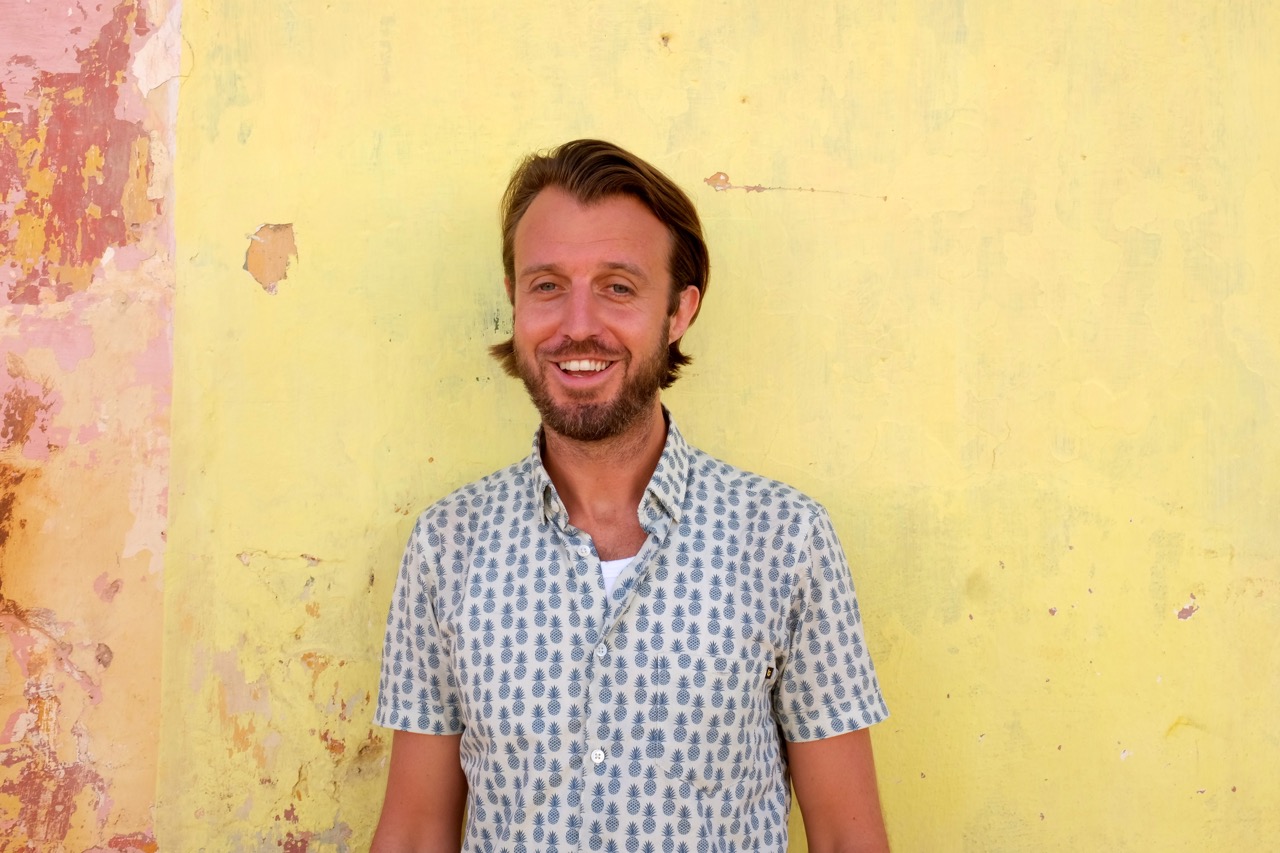
Proper: Do you remember when I said your shirts were like crack cocaine, because they were so good and affordable that they were pretty addictive?
Mark: Yeah I remember that. Are you off crack yet?
Nah, am I heck. It was a compliment though.
Yeah, I know. I took it as such, mate. Don’t worry.
And now you’re getting into the harder stuff (with Afield being more grown up and serious). You’re like a proper drug dealer.
Ha! Thanks. I think?
It’s meant to be another compliment. I still have all those old shirts I got when you first started, by the way… but they haven’t fit me for a long while.
That happens to us all. I’ve been there myself. Fair play for keeping them though – if we ever make the big time, you never know, they might be worth a few quid one day!
Hope so… Okay… Let’s get started by going back to the beginning of tuktuk. Tell us all about how tuktuk started when you were out there in Sri Lanka [he’s now based in Turkey], what the bespoke angle was all about… all that.
Yeah. Okay. Well, I moved out to Sri Lanka in… late, 2007. I was recruited by a big department store out there, to do their e-commerce and marketing. Around mid 2009, the idea of a shirt brand was bubbling away, and I started getting shirts made at a local tailors for myself, and then took some back home for friends and family one Christmas.
I was sourcing the fabrics down at the local market over there, Pettah. It’s a maze of fabric stall after fabric stall, all tiny narrow streets, and no air, hotter than the sun … but there are some incredible finds to be had if you persevere. It’s amazing, and I still enjoy going for a mooch around there, anytime I am back in Sri Lanka…
That sounds ace.
So, I was back in UK for Christmas, in 2009, and I decided to take a few samples round to some of the menswear shops in Manchester – this was pre-brand name, and pre-any concrete idea of what I wanted do – and the feedback was very positive. So I landed back in the tropics at the start of 2010, and thought, “You know what, I’m gonna do my own thing.”
And that was tuk.
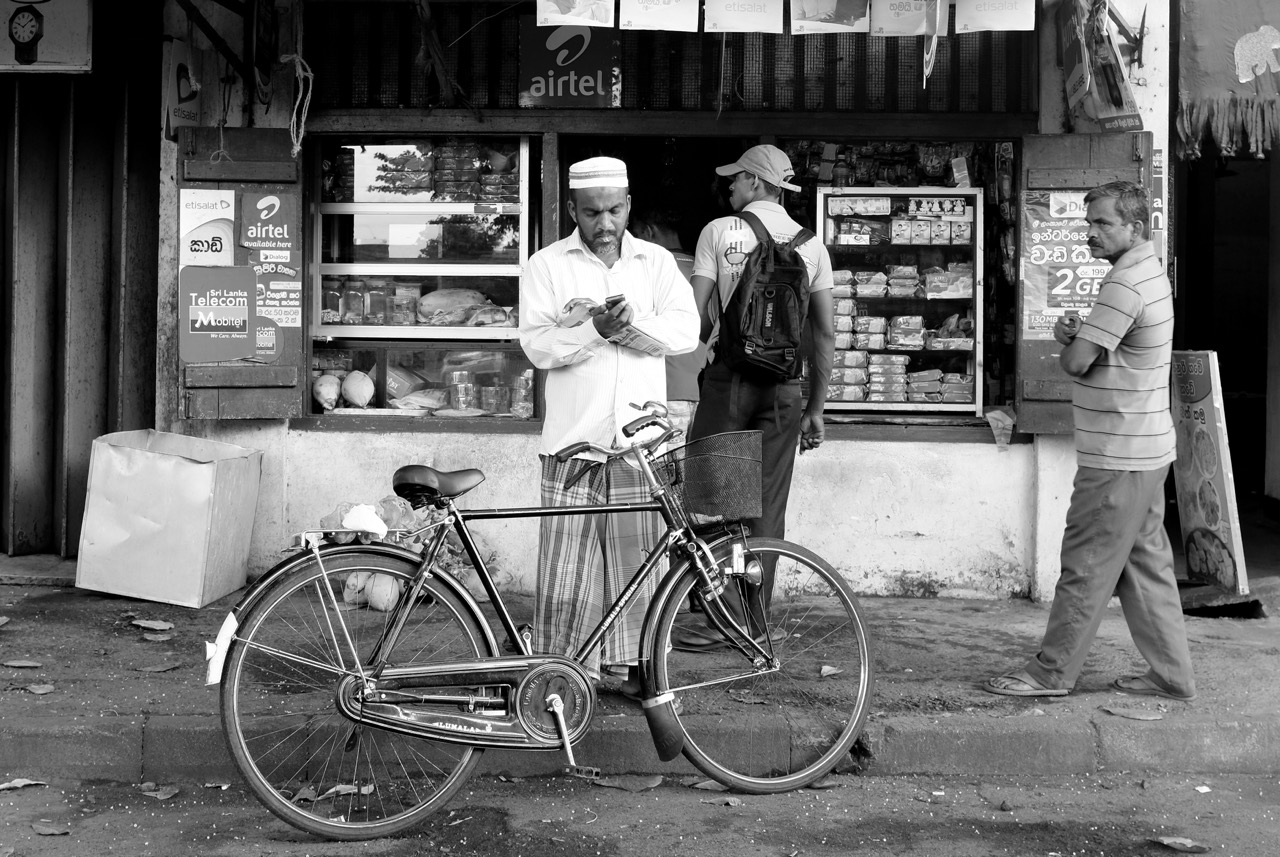
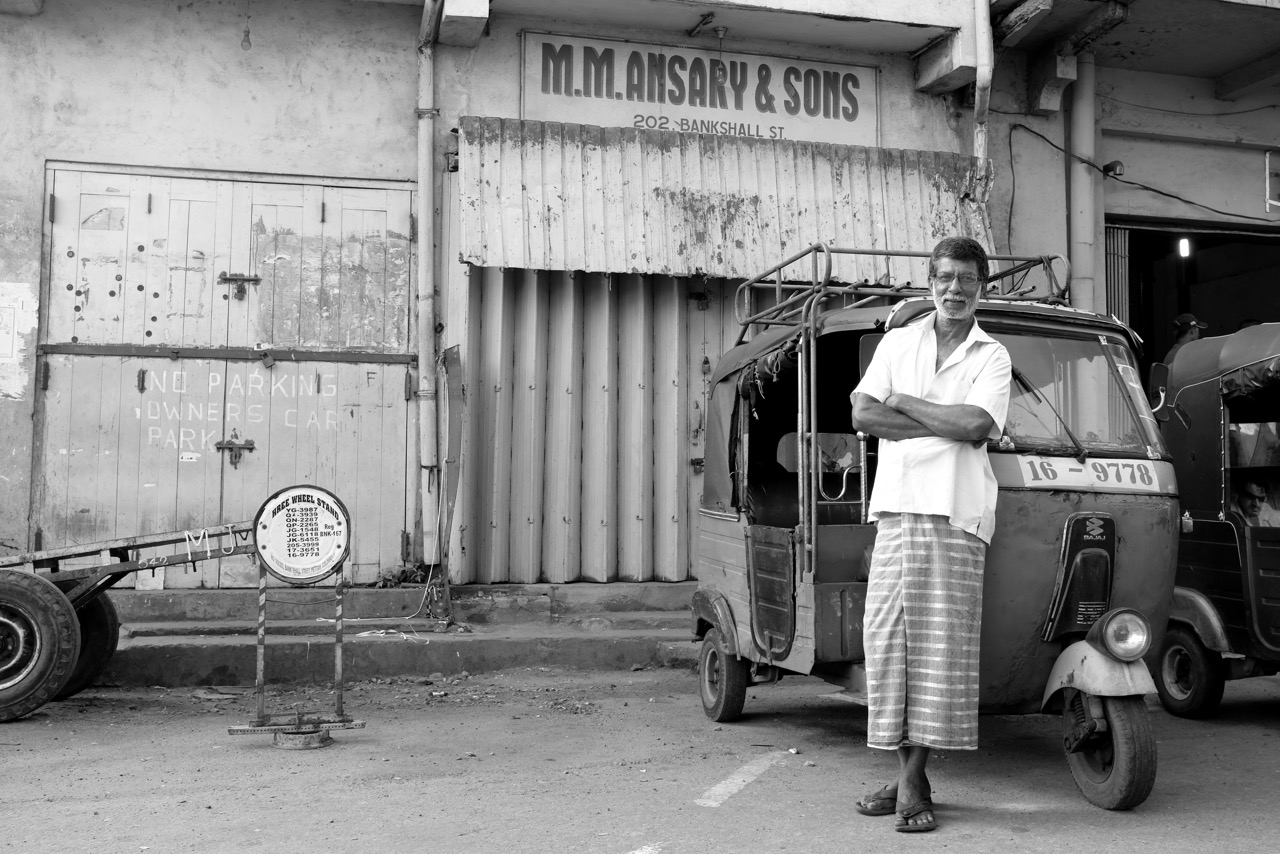
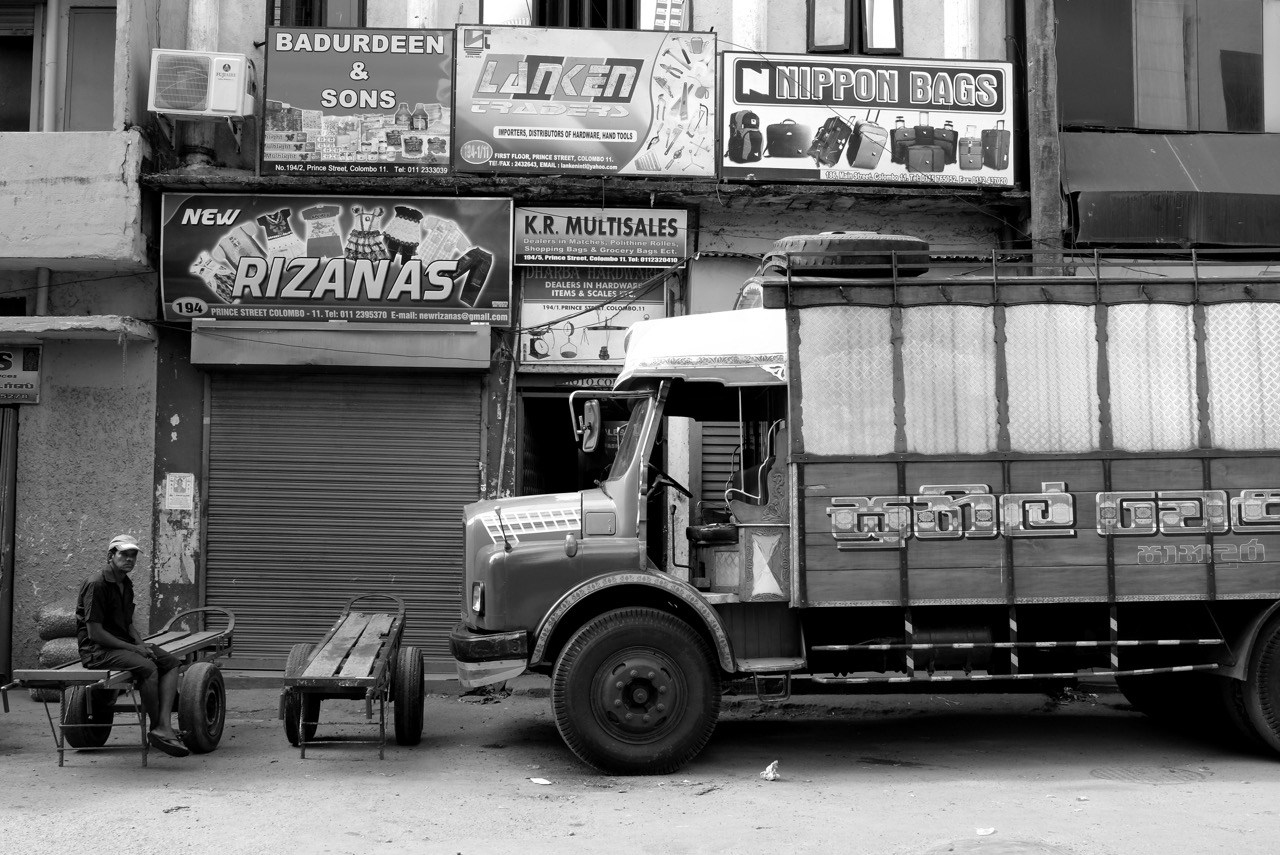
Images of the fabric market district.
Mark: I thought of the name, designed a logo, set up a web store… all that sort of stuff. And launched the site at the end of January 2010 with only one of each shirt/fabric option stitched – just so we could display them on the site.
All in all, I probably used about 40 quid to get me up and running … and that was mainly buying fabrics and getting the initial samples made. It was a very simple way of doing things, but with not much money to hand, it was the only way, really …
Proper: And that was all bespoke stuff?
Yeah. Well, sort of. The bespoke angle was that I had all the fabric in store so, as and when I got an order, I’d go to the tailors and he’d make them on demand. A size 1 order would come through say, and he’d then rustle up a Size 1 with the size chart I’d given him. We didn’t carry any off-the-peg shirt stock, only fabric – which looking back now, seems like such hard work.
I was still working for the other company at the time, so I used to have to head over to the tailors after work on this crappy little pedal motorbike (you know those little things they deliver pizzas on in Europe? One of those). Stuck in Colombo rush hour traffic, I’d drop of the fabrics and the order details with the tailors. And then, the next day, I’d pick the finished shirt up and courier it to wherever the order came from. And the orders kept coming in, thankfully!
I think a lot of getting known quite quickly was to do with the BFF blog, which had quite a big following. I posted something up on the blog about the new brand, and a lot of the readers seemed interested and the initial traffic, I think, was due to that. And then the next thing, an article appeared on ModCulture and after that … it just snowballed, really. We ended up getting about 70 orders in the first couple of weeks.
By this point, my dedication to my 9-5 job had completely gone. They obviously saw that my attention was elsewhere, and it got to the point where my employers ended up spying on me to see what I was up to… no word of a lie, they even ended up getting someone at the office to follow me after work one time. I’m there on the streets of Sri Lanka, on that crappy bike, getting followed around with a tail.
Like Bourne. The first Bourne.
Yeah, exactly! But the guy who was following me wasn’t much of a Jason Bourne character. But, then again, I guess I was Bourne right? Because I was being followed?
Anyway, I went back into work the next day and they called me into the office, asking what I was up to, why I was working with the tailors, what was this shirt thing all about. And that was that: sacked due to a conflict of interest.
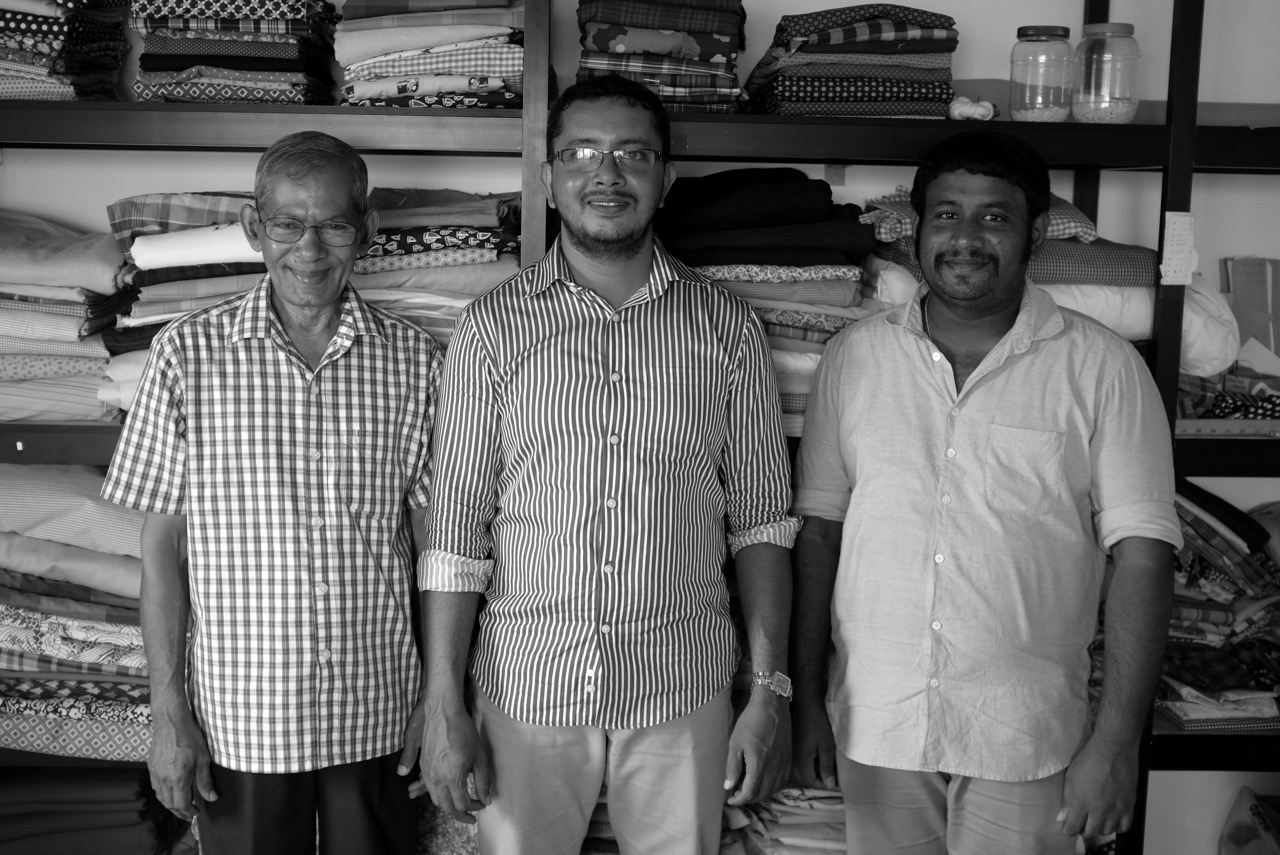
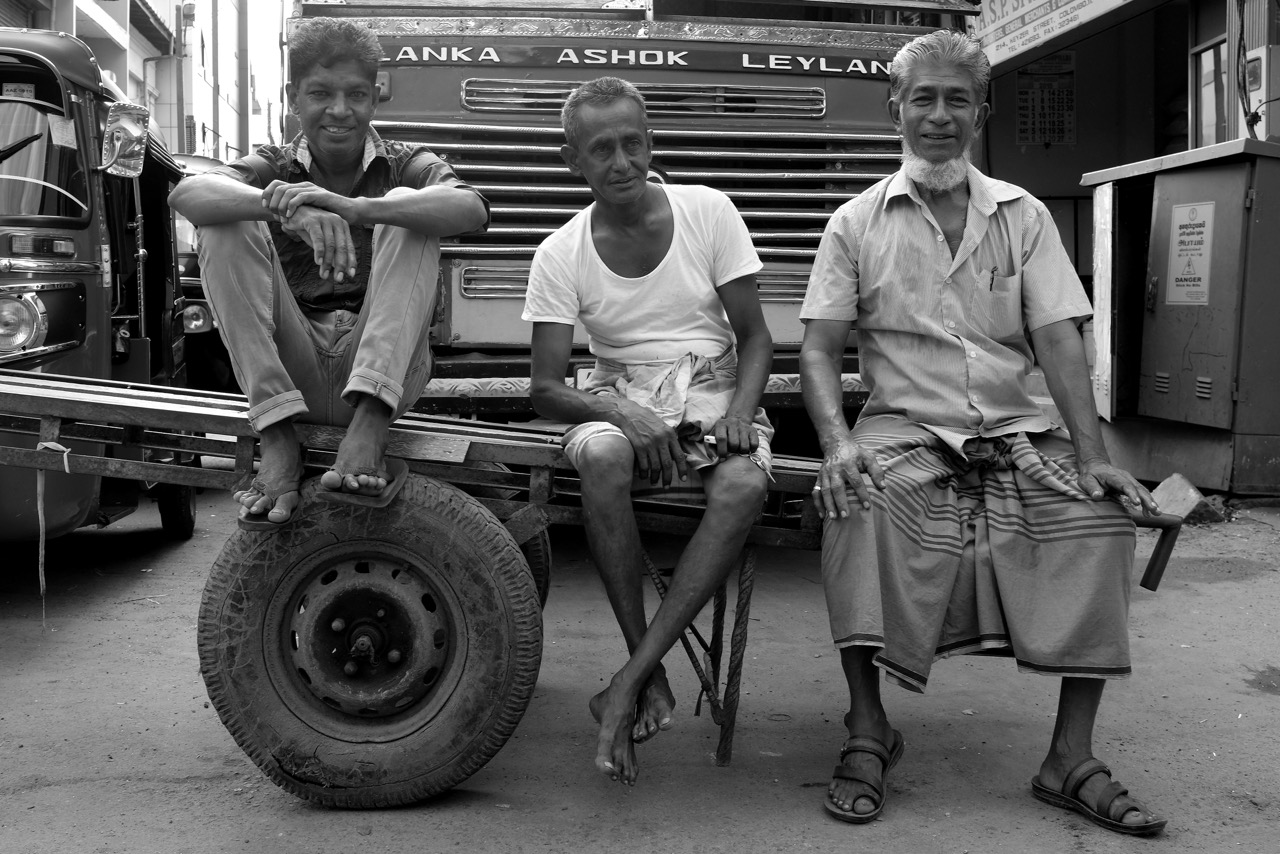
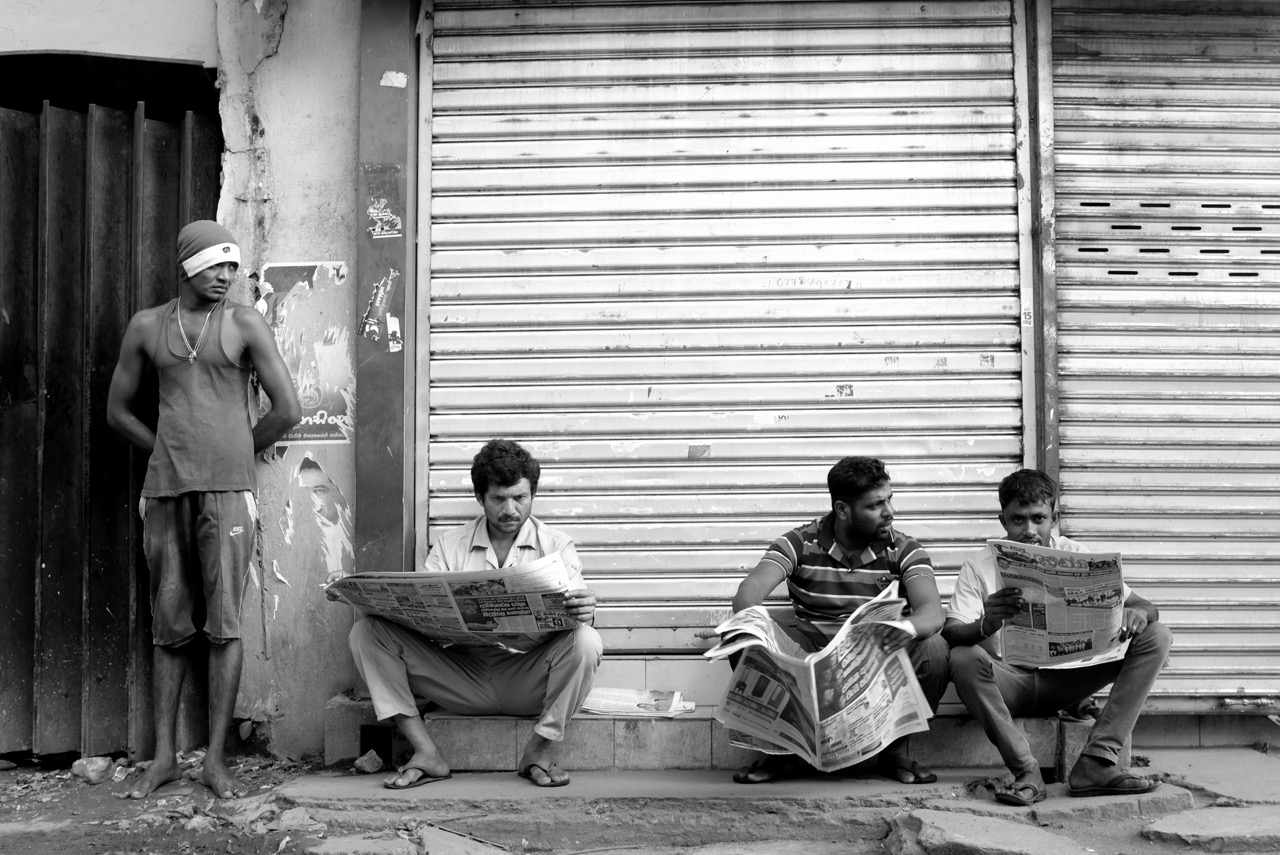
Mark’s pictures of Sri Lankan tailoring teams.
Proper: So that pretty much made the decision for you – to go full time?
Mark: Yeah, I had no choice… But, obviously, looking back now, it was the best thing that could ever have happened to me. The main problem though was they [the company] had my working visa, which they cancelled, so I had to find another way to stay in the country with a new, legit’ visa. Let’s just say, I made it happen, I saw a man about a dog, but I can’t go into the finer details. But, yeah, thankfully it all worked out because Sri Lanka has been an incredible experience for me.
I’d love to go there.
I am slightly biased, no doubt, but seriously, it is an amazing place; the people, the beaches, the hill country, the food. Well, the food… actually, if you like spicy things it’s mega, but if you don’t (like me), then you’re in trouble. They put spice in everything. Everything. I remember when I first started working for that department store, there was this sandwich delivery service, and the lass I shared my office with was like ‘Yes, tuna sandwich, you will be fine with that. No spicy.’ Anyway, it turns up, and I spent the next half an hour in the bathroom, washing my mouth out with ice cold water. Hottest thing I’ve ever eaten … a tuna sandwich that ‘wasn’t spicy.’ So, yeah, they love spicy food.
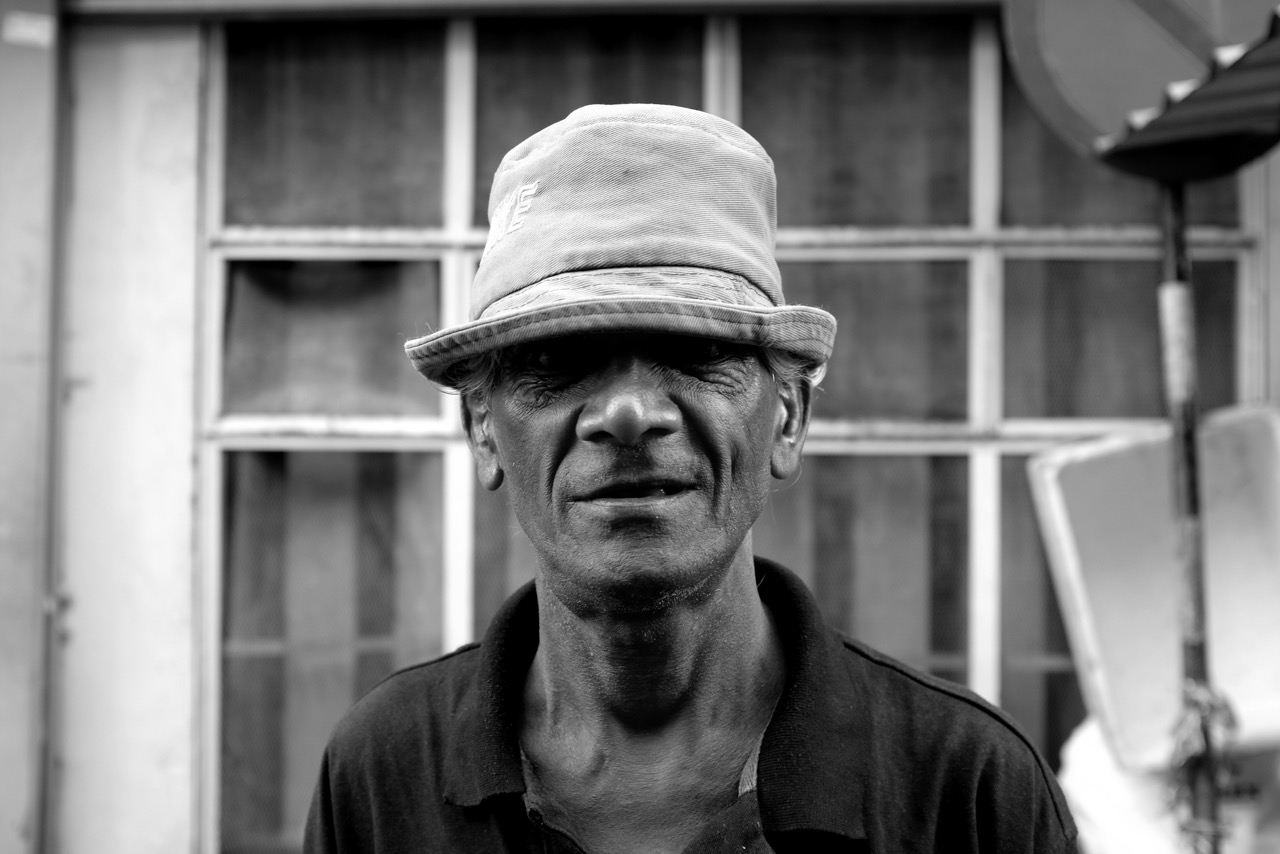
Proper: I’ve played cricket with a bloke from Sri Lanka and from what I’ve heard about the place, it sounds a lot like India but more chilled out.
Mark: You’ve summed it up there; I touched on India but Sri Lanka is a much more calm and serene place. The people are some of the happiest people you will ever meet. People from India are sound too, of course, but in Sri Lanka, I dunno; there’s something about them. They’re also cricket mad, it’s on the TV 24/7. Relentless. Two lads I lived with for a few years were big cricket nuts, it was perpetually on in my apartment. I had to move out, it was doing my head in! But, yeah, what a place Sri Lanka is.
You mentioned the markets. What’s the maddest fabric or shirt you’ve seen out there, or you’ve made into a shirt even?
Oh God, mate, those markets in Sri Lanka. I have seen some of the maddest, most obscene fabrics known to man. I’m talking garish, luminous, polyester…. awful stuff. Majority of the stuff you see there is, well … a bit snide. I am not talking just the quality, the construction, but also some of the designs. I will have to try and dig some pictures out …
I know that part of the world is known for its colourfulness and sometimes you’d see the colours and think they shouldn’t work – but they do. Whereas, trust me, some of the fabrics; the colours they put together, it hurts your eyes.
Some good stuff though.
Yeah, deffo. I’ve found some great deadstock stuff over the years, stuff like Ralph Lauren madras, for example.
Out there, it’s extra special – I know Made In England is seen as great – and it is, don’t get me wrong. Supporting the UK industries and factories, all for it; and hats off to those who do it. But over in Sri Lanka, the manufacturing of clothes is all they do, and they do it well, it’s their bread and butter.
There’s a company out there who do a lot of work with Nike, all their technical stuff, fabrics and production. Really forward thinking stuff. The factory regularly gets voted one of the number one factories in the world, not only due to the technical side they have developed, but also their commitment to eco friendliness, employee rights, and all that. And that’s Sri Lanka, if it was in the UK, USA, Portugal, Europe… everyone would be going nuts, singing its praises, you know?
I know what you’re saying. I can’t remember who it was now who – I dunno but someone, some big menswear-y guy anyway – said the same sort of thing about China. There are some awful sweatshops and poorly made pieces – but there’s also a new wave of places which are as good as anything you’d find here in the UK or Portugal or Italy. They just happen to be in China.
Precisely. It used to annoy me when people thought I was exploiting the manufacturing process, or whatever, by being based in Sri Lanka. I didn’t deliberately move out to Sri Lanka to start the business, I just so happened to be there and things went in that direction. We work closely with all our suppliers, I know them all personally, and have visited all the factories. The shirt factory we use has 70+ years of history, the oldest on the island, and has been making stuff for the likes of Ben Sherman, Lambretta, Tommy Hilfiger and Lacoste over the years – you name it, they’ve probably made it.
Again, if this was the UK or US we were talking about, you could really tap into the heritage side of things. I don’t make much of that – the 70 years as shirt makers – but I should really.
How did you get into these factories?
Through a mutual friend, I was introduced to the owner of the shirt factory we use, Ajita. A lovely guy. The factory has been in his family since it started way back in the early 1940’s. Before we met, I was dead nervous because I really wanted to get onboard with them, I saw it as a great opportunity. I went in there in suit and tie, in 30-odd degrees heat, sweating like a mad man, trying to not look like a guy who didn’t have a plan. But he sussed me out.
Luckily we found a mutual connection with the good old North West of England, and the fact that he studied in Blackburn back in the day. We nattered for ages about the UK’s crap weather, the Industrial revolution all that kind of stuff.
So, we got on and I decided to push my luck by asking for only a couple of hundred shirts and he was like, “You know we usually do thousands as a minimum?” But he was into what I was trying to do and now, as we’ve grown over the years, I think he kind of feels like a proud uncle for giving us the chance.
The whole Blackburn connection was a real God send. From there he started putting me into contact with all these other people and fabric mills. And that’s helped us develop and design our own fabrics over the years.
I was chatting to Mark over FaceTime as he’s now based in Istanbul (he assures me he isn’t on the run from Interpol/isn’t a real life Jason Bourne) and we were interrupted by his dog barking and the sound of traffic on the street. His dog, Stevie, he says, is a ‘bipolar, skinny, little Sri Lankan street mongrel’. But he loves her enough to have brought her back to Europe with him.
Proper: Carry on with Tuk and how it became tuktuk…
Mark: Well, all was going great, but after a few months I got a scary cease and desist letter from T.U.K’s lawyers in California. They make those big, daft, clumpy black shoes for girls. You’ll have seen ‘em around. I shit myself to be honest, and as I didn’t have the money or the time to fight it, I just changed the name to tuktuk. And that was that … tuk was now tuktuk.
Was it about then that you moved to Turkey?
Well, Sri Lanka is a long story, but to answer that, I got together with my missus out there and the long and short of it is; she got moved to Istanbul by the company she works for and I got dragged along!
Back to Sri Lanka … after the name change, the brand really started taking off. I stopped outsourcing the orders and ended up setting up a small sample and tailors room in my spare room in the apartment. I employed our first member of staff, an old Sri Lankan chap called Senna – that’s his nickname by the way, his full name was longer than that Welsh village, and very difficult to spell. He didn’t speak much English, which made for some entertaining sign language between the two of us. He was recommended by a friend of a friend, and it turned out he’d been making shirts since the age of 16. He was in his late 50’s when we signed him up, and he retired at Christmas just gone, at the ripe old age of 63.
Anyway, opening our own sample room helped us really up our game, allowing a lot more quality control. We now have a proper office space in Sri Lanka: 3 tailors, an office manager, a graphic designer and it’s going very well. They manage all production out of Sri Lanka and regularly visit the factories. Actually, they have just overseen a massive order on the record boxes we do with Jack White’s record label … and they were shipped to Tennessee yesterday.
The White Stripes’ Jack White?
Yeah! His label got in touch and really liked the record boxes we do and wanted a few. Coincidentally I went to school with his ex-missus, Karen Elson. She’s a good old Chadderton lass, don’t you know! Small world, isn’t it?
He’s into cricket you know.
Really?! Well, he’s gone down in my estimations, mate.
Actually, you’ll like this… when you’re in somewhere like Sri Lanka , you kind of stand out and are a bit of a, I dunno, a novelty, I guess. Only white man in the village kind of thing. So much so, I ended up being in two films over there – you’ll like one of them; The Cricket Movie. You’d love it. Well, you wouldn’t because it’s all in Sinhalese. It was about a colonial English cricket team who found the locals playing cricket and “we” weren’t too happy about it, so we challenge them to a game.
The locals go find a monk and the he turns this tree into a time machine, and they go into the future to get trained by the modern day Sri Lankan cricket team. After learning all the tricks, they jump back in the time machine and play the game against us. It’s all about, like, colonialism, advancement of culture, equality… but it all comes down to the last ball of the match and this Sri Lankan lad catches one of “us” out to claim the win. Quite possibly the only ever film about cricket and time travel … and hopefully the last.
Early in my Sri Lanka days, I also ended up getting a guest radio show on one of the biggest stations in Sri Lanka. That guy who followed me after work and got me sacked, well, his missus worked at the station and I told her I was into collecting records and was a bit of a music geek and with that she was like “Do you want a show?”
I was like “WHAT?!” And I got a guest slot on this radio show each month.
So yeah, Sri Lanka was pretty good to me. Set up my own business, got a radio show, met my missus, “starred” in two films and adopted a dog.
To say the least! Okay, moving on, let’s talk about the new label. Talk me through it.
It’s the evolution and rebrand of tuktuk and will become Afield. I was never totally happy with ‘tuktuk’ as a name, and I don’t think certain customers have been either. And, you know, imagine how difficult it is to keep designing AW collections that are “Inspired by the Tropics [tuktuk’s strap line)]? It’s well hard.
That said, the new collection is titled Tropicalism for AW16, inspired by tropical modernist architecture, which works. But there’s only so much you can do on the Tropical angle. That’s why a rebrand makes sense. We also wanna get into bigger distribution – into America and into Japan – and the name was working against us there too. I’d say the main reason of the rebrand is to go in a slightly more contemporary direction, because the brand has matured over the last 6 years. And so have I. So it feels right to take it to the next level and move with the times..
Is it going into many stores then?
Yeah we just did all the trade shows. We were at Pitti, Jacket, Seek, Revolver and we’ve got another one coming up in Vegas.
We’ve now got sales showrooms in London, Madrid and New York. And sales agents in Hamburg and Italy… as things currently stand, we will have about 60 stores taking Afield SS17. tuktuk stockists will stay onboard, but will now stock Afield, and we have some new additions too.
Nice work. So you are in America then…
Yeah. This is the first time we’ve worked in the US and we’ve had some great feedback. We are working with a great showroom out there, they also look after Oliver Spencer, Universal Works, Creep, La Paz… you get the jist. That kind of feel.
As for the brand, if you will, the message I have in my head is “affordable contemporary”. Each collection will have a lot more focus and a message or a concept or a direction. That’s an evolution from what we’ve been doing as tuktuk. The idea is to streamline the collections, focus more on things that we are really good at; quality not quantity.
Afield won’t be as playful and colourful as past tuktuk collections, there will still be elements of that, but it will sit alongside more interesting, higher end fabrics.
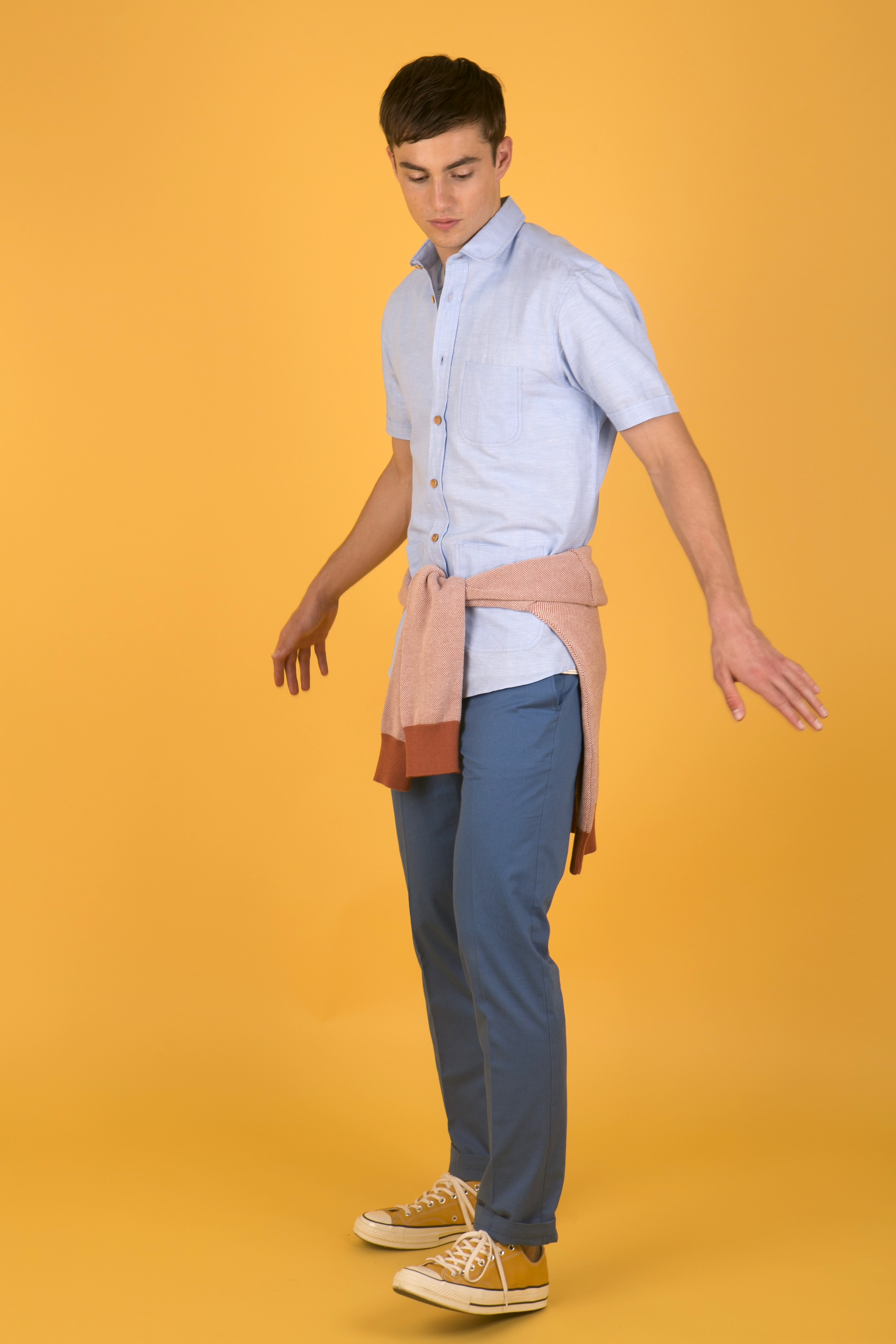
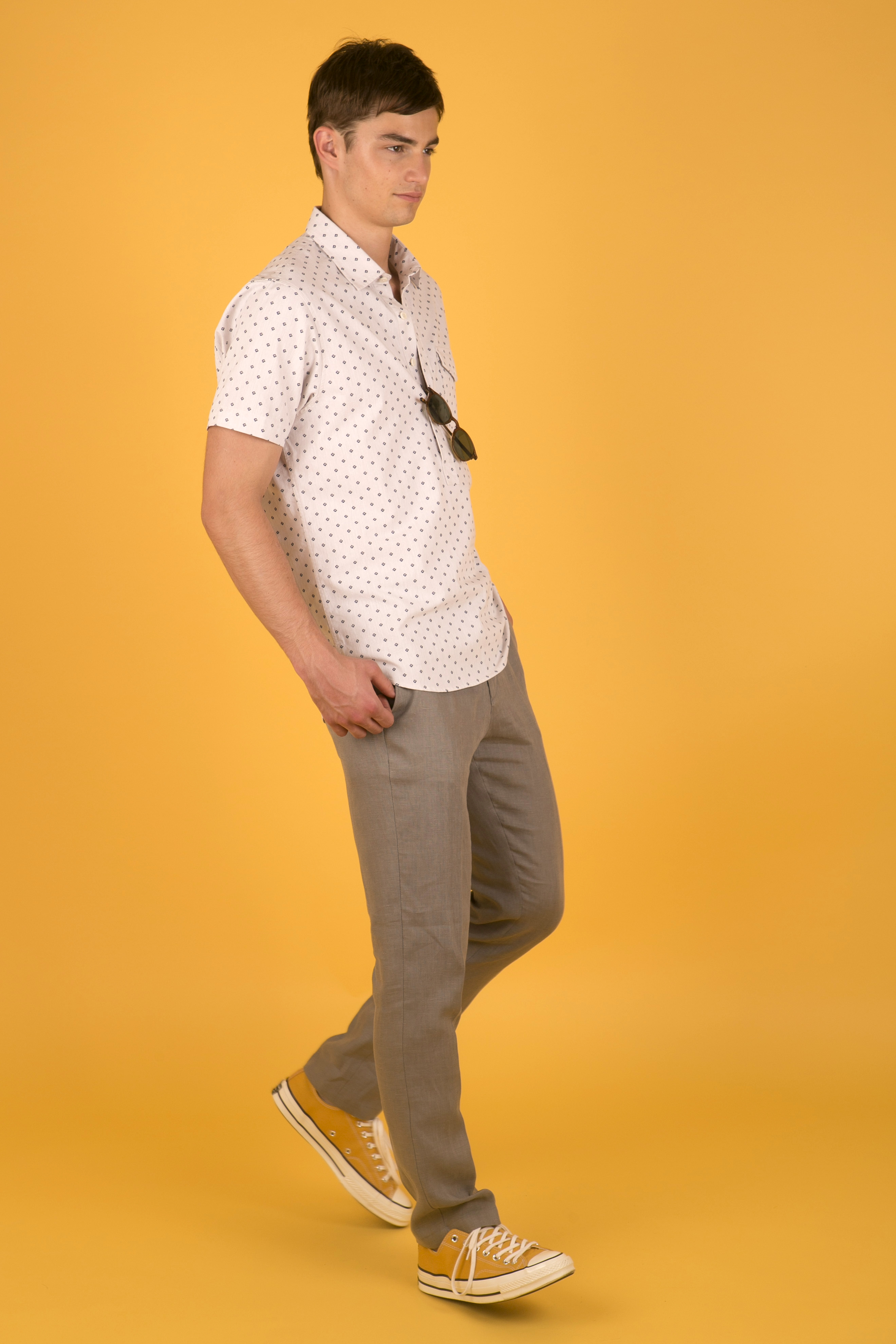
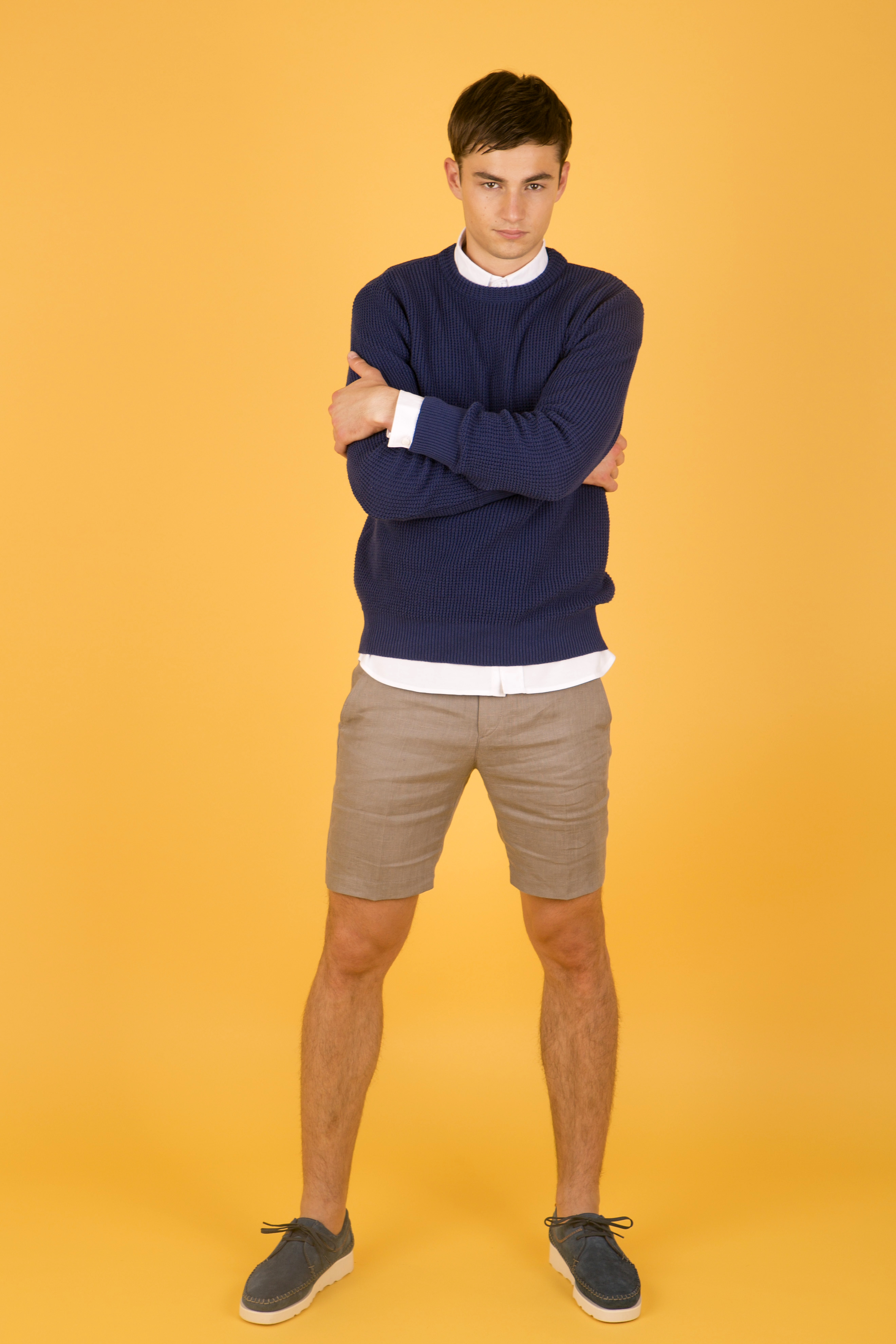
Extracts from the Afield SS17 lookbook.
Proper: I was speaking to Paul at S.E.H Kelly about this-
Mark: Ah, I’m good mates with Paul from the Manchester days, we worked together for a few years! I read that Talking Threads. Enjoyed it, mate.
Ah, cheers, erm, yeah, he was saying the same things about doing one thing well, and all that.
Yeah – it makes real sense.
So what will Afield be like?
As mentioned, it’s an evolution of tuktuk, so you can expect much of the same, but like I say with a more “affordable contemporary” approach. I do love Folk, Oliver Spencer, Universal Works… all incredible brands, but they aren’t cheap. They’re a considered purchase, aren’t they, especially nowadays.
Though with Afield, we’ll be super-conscious of also being affordable as well as being good quality garments – not that they [Folk et al] aren’t. You know what I mean… We want that just slightly friendlier price point. We’ll be balancing that with everything we do.
I hope what I mean comes across there.
Yeah it does. I get you. That lower price must be down to the size of manufacturing? 60 stores is a lot?
Yeah and at the same time, we’ve streamlined the choices on offer.
Look, the message with Afield is along the lines of “Contemporary menswear with a global inspiration”. That’s the USP, kind of.
We manufacture in Turkey, India and Sri Lanka but design inspiration comes from travel (generally) and parts for each collection come from all the over the world. For example, I’m in Istanbul, there’s the team out in Sri Lanka and then we have the warehouse, an office and the multi-brand store (Thread) in Brighton, which my brother looks after. We’re hoping to open an Afield flagship store in Brighton next year too.
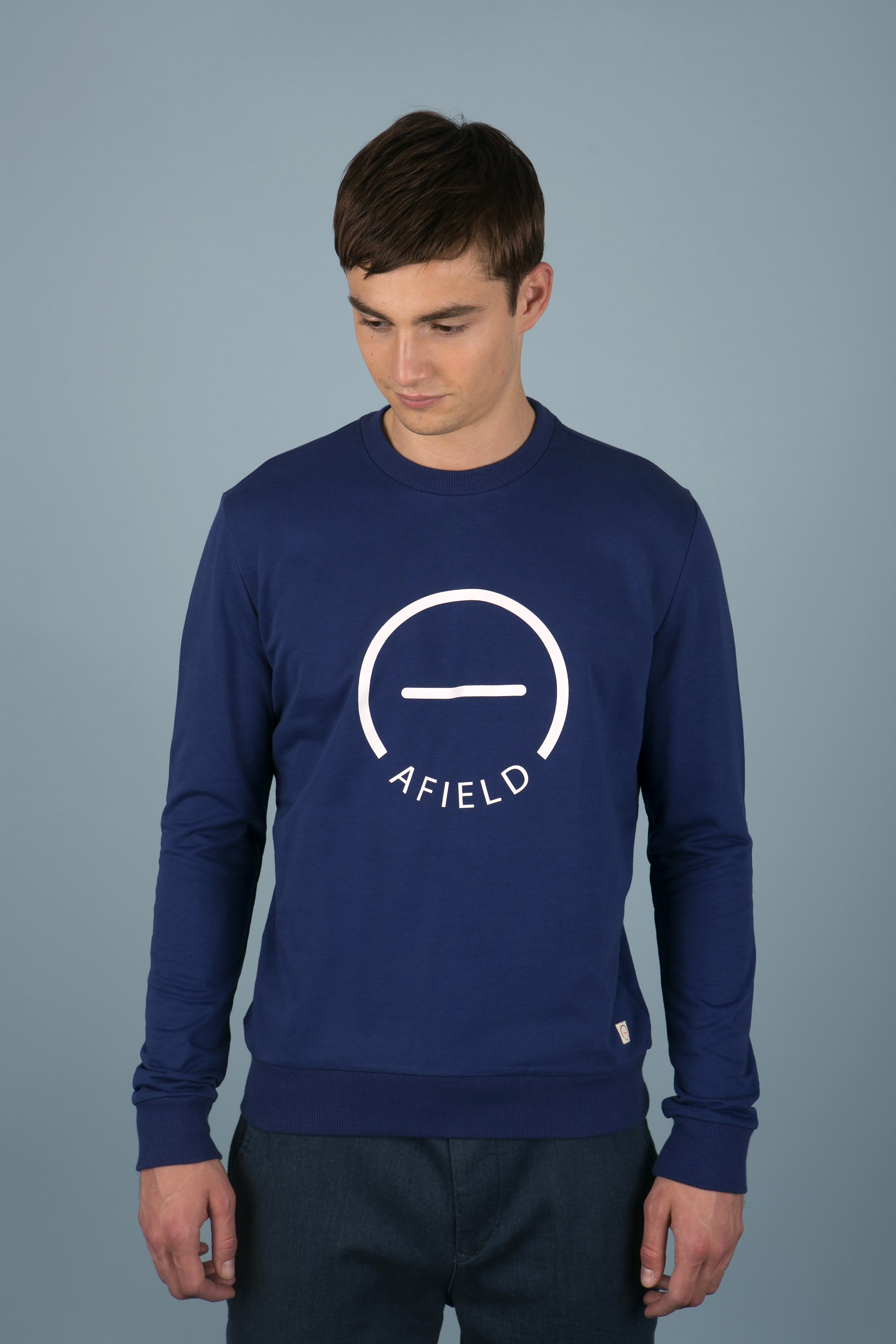
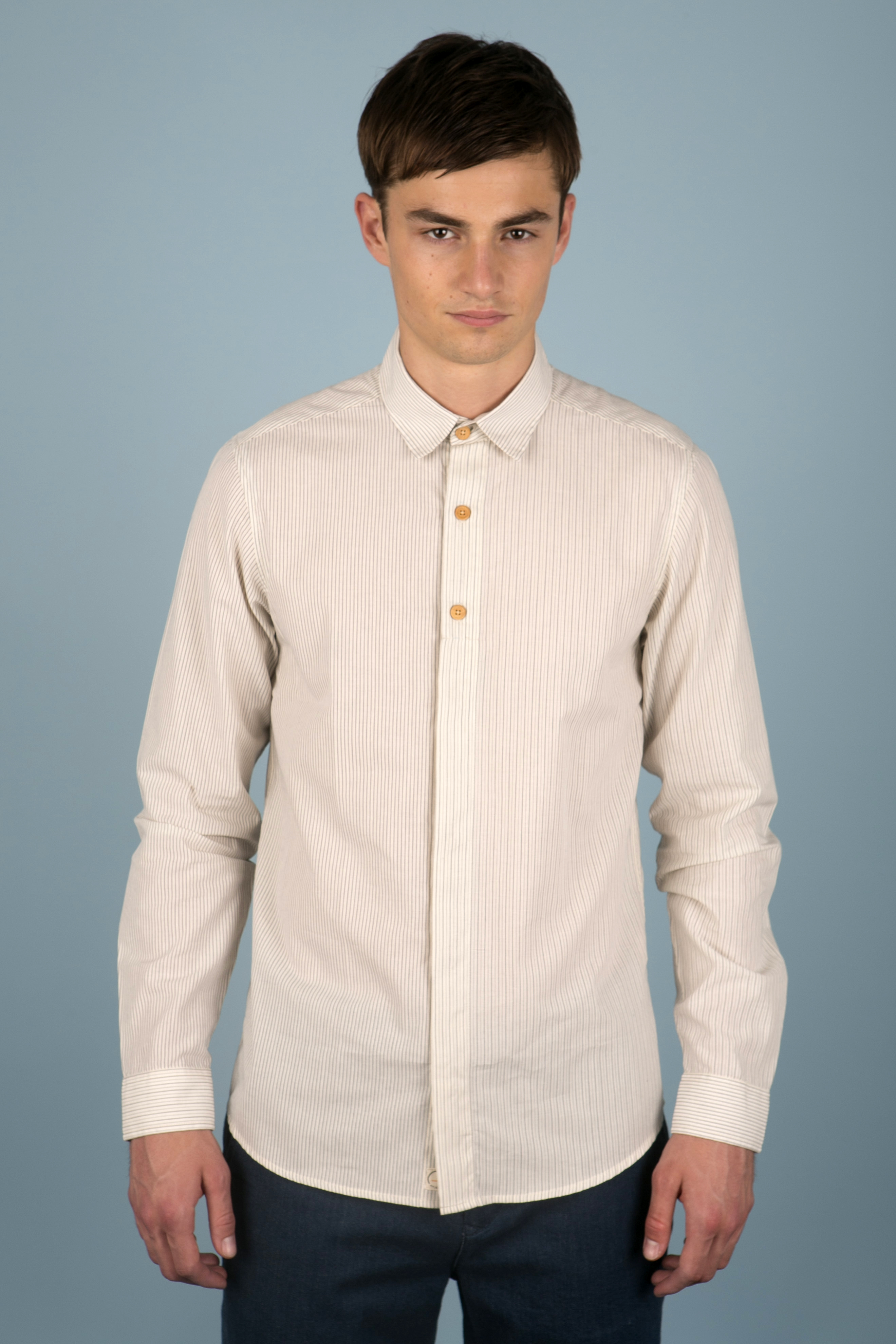
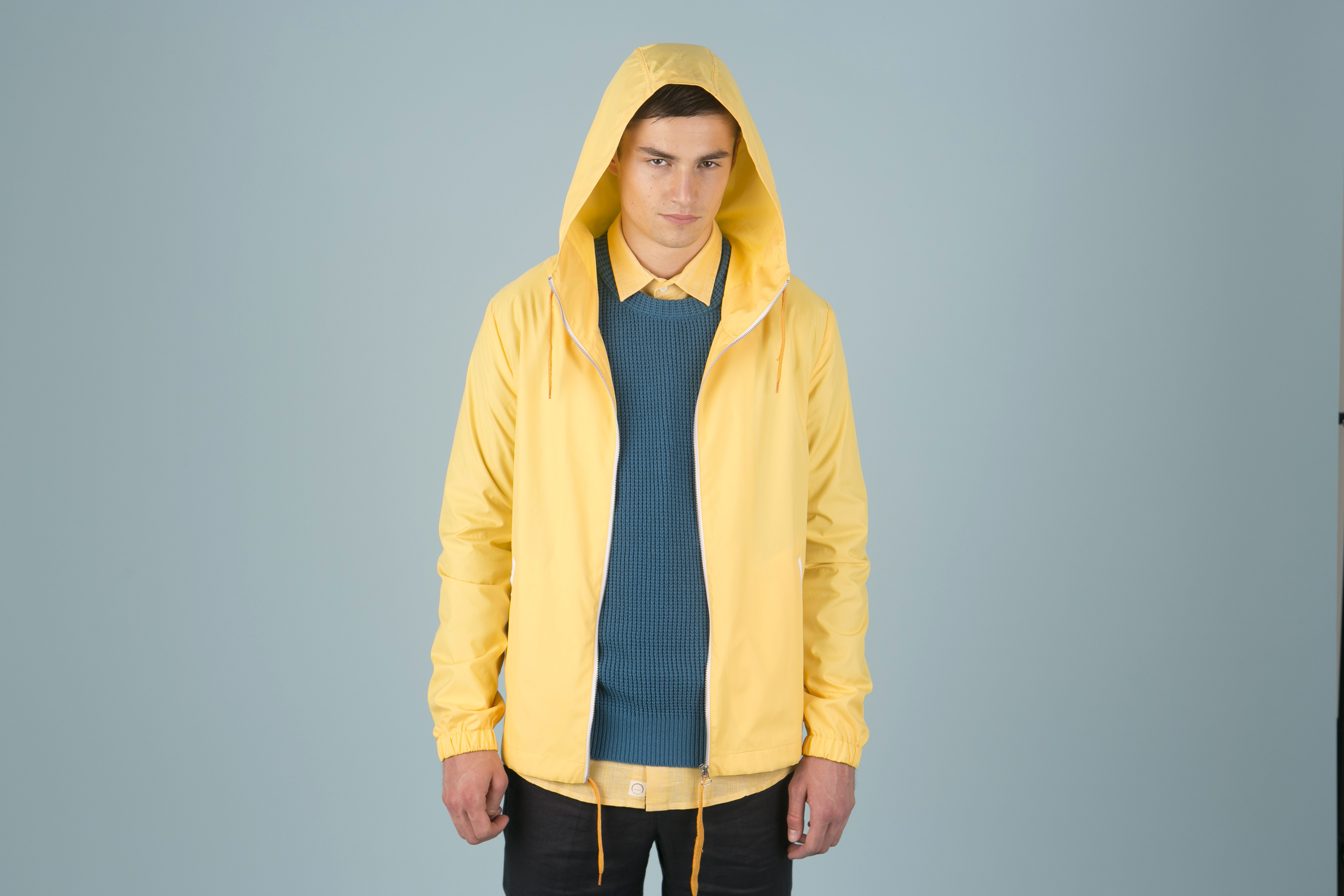
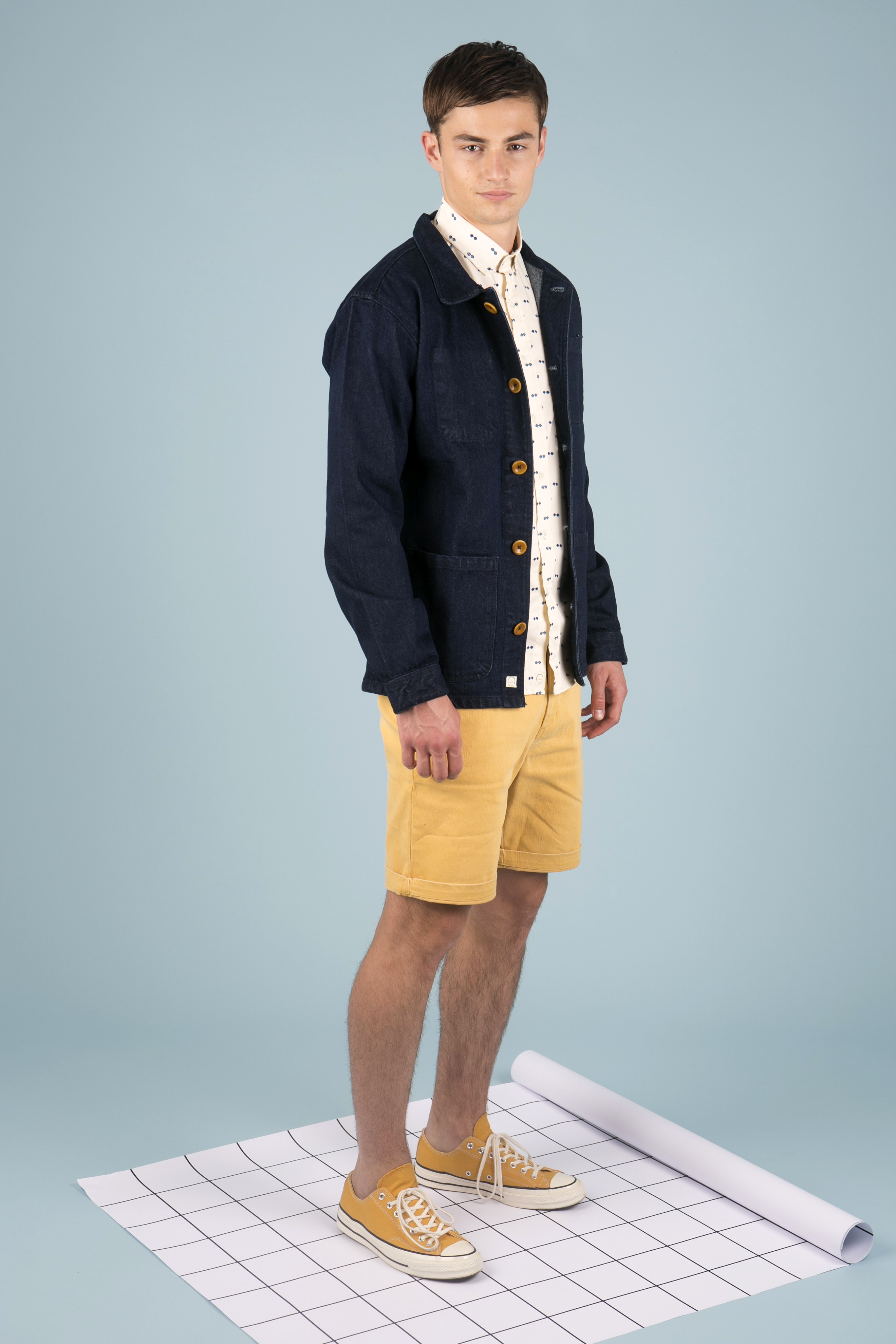
That is some turnaround. From being made redundant and having to sign-on, wondering where life would take him; to taking a job on the other side of the world. Whilst there he met his wife and started his own business, which is now going to be sold in 60 stores around the globe. Working hard and taking your chances, is the best way to describe it, I think.
If you want a moral, I guess it’s this: Fuck it. Go for it.
Look out for Afield as we head into 2017.
